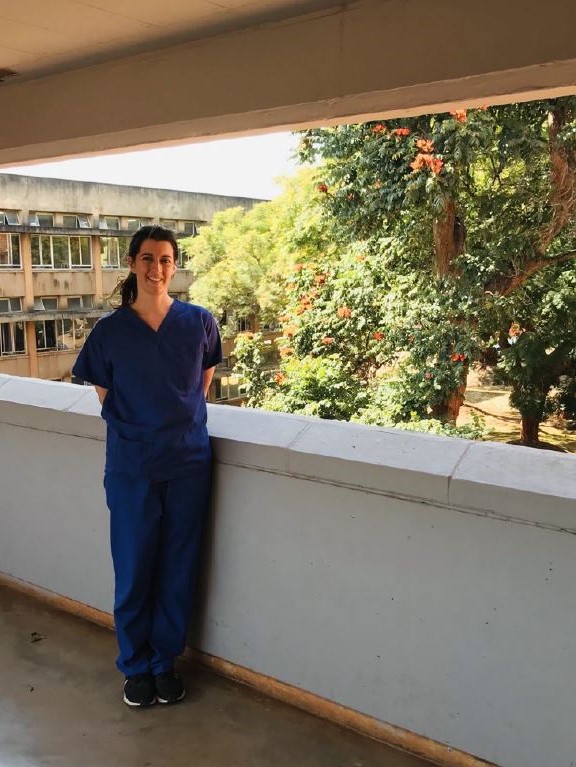Blizard profile: Phoebe Hodges
Phoebe Hodges was recently awarded funding from the latest round of Queen Mary's Postgraduate Research Fund. Phoebe plans to use the award to facilitate microbiome work at the African Microbiome Institute in South Africa to look for changes associated with the demographic and nutrition transition in Zambia, from a subsistence farming community eating a traditional diet in a rural village, to people of high socioeconomic status living in the capital city Lusaka.

Phoebe Hodges in Zambia.
Name: Phoebe Hodges
Role: Clinical Research Fellow/PhD student
Centre: Immunobiology
Research interests: The exposome in inflammatory bowel disease (IBD), global health
Congratulations on your successful application to the Postgraduate Research Fund. Could you tell us about your plans for how you will use the award?
I plan to use the award from the Postgraduate Research Fund to facilitate microbiome work at the African Microbiome Institute in South Africa to look for changes associated with the demographic and nutrition transition in Zambia, from a subsistence farming community eating a traditional diet in a rural village, to people of high socioeconomic status living in the capital city Lusaka.
What’s the most interesting thing you’re working on right now?
The hypothesis of my PhD project was based on the observation that people diagnosed with IBD in Zambia tend to be from a higher socioeconomic group and hence might be expected not to have the same small bowel lesion (environmental enteropathy) that is almost universally observed amongst people living in poverty in low-income countries, and that is thought to result from the unsanitary environment. However, work to date amongst IBD patients and controls from higher socioeconomic groups has shown this not to be the case – based on small bowel biopsies examined so far environmental enteropathy seems to be universal amongst the population regardless of socioeconomic status. This is unexpected, and it now becomes even more important to examine other factors that may change with socioeconomic status that could have an impact on risk of developing IBD. The gut microbiome is one of these, and the award from the Postgraduate Research Fund will allow me to pursue this line of inquiry.
What are you passionate about?
Strengthening research infrastructure in low- and middle-income countries, which will be an integral part of achieving global health equity.
Tell us something that we don’t know about you!
Although based at the Blizard, I have been living in Zambia since starting my PhD so may not have seen you around...